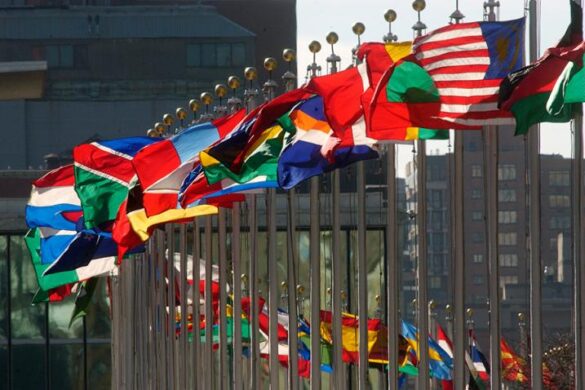The UN Commission for Human Rights, established to promote and protect fundamental human rights worldwide, operates within an intricate web of international norms and agreements. Its foundational premise rests upon the affirmation of universal human dignity—a principle that resonates profoundly with Christian teachings. This exploration of the Commission’s mandate and role elucidates its significance within the broader context of human rights advocacy, particularly through the lens of Christian values and ethics.
Founded in 1948 with the adoption of the Universal Declaration of Human Rights (UDHR), the Commission aims to uphold the sanctity of human life. This objective mirrors Christian doctrines asserting that each individual is created in the image of God (Genesis 1:27). The Commission’s mandate encompasses several key áreas, including the promotion of social justice, equality, and the eradication of discrimination based on race, gender, religion, and other potentially divisive factors.
One pivotal aspect of the Commission’s role is its facilitation of dialogue among nations. The Commission organizes annual sessions where diverse stakeholders, including member states, non-governmental organizations (NGOs), and civil society representatives, convene to discuss pressing human rights issues. This platform not only fosters international cooperation but also serves as a forum for collective moral reflection—an endeavor deeply rooted in Christian teachings on community and mutual responsibility. The biblical notion of the body of Christ (1 Corinthians 12:12-27) emphasizes the importance of each member’s contribution to the whole, a principle that the Commission seeks to embody through inclusive dialogue.
Another significant dimension of the Commission’s work is its engagement in specialized mandates and mechanisms. These include Special Procedures, which are independent experts who investigate specific human rights violations or themes. This investigative function aligns with the Christian mandate to seek justice for the oppressed, as articulated in Isaiah 1:17—”Learn to do right; seek justice. Defend the oppressed.” Through these mechanisms, the Commission not only highlights grave injustices but also galvanizes the global community to respond through advocacy, awareness, and legislative changes.
The Commission plays a crucial role in formulating international norms and standards that govern human rights protection. The drafting of various treaties and conventions extends the Commission’s influence, providing a framework that compels nations to adhere to agreed-upon standards. This legislative aspect mirrors the biblical call to establish just laws and systems that reflect God’s righteousness (Proverbs 29:4). By advocating for binding treaties, such as the International Covenant on Civil and Political Rights (ICCPR) and the Convention on the Rights of the Child (CRC), the Commission promotes not merely the avoidance of injustices but the active pursuit of the flourishing of all individuals.
Moreover, the Commission conducts reviews of human rights situations in various countries and publishes reports that shine a light on abuses and violations. These reports serve as vital tools for accountability, aligning with Christian ethical considerations of stewardship and integrity. Issues such as human trafficking, torture, and unlawful detentions are addressed with urgency, reflecting core values of compassion and mercy. The Christian call to “speak up for those who cannot speak for themselves” (Proverbs 31:8) resonates deeply within the Commission’s mandate to advocate for those often rendered voiceless.
Furthermore, the UN Commission for Human Rights is instrumental in the affirmation and promotion of economic, social, and cultural rights. These rights—often overlooked in favor of civil and political rights—play a critical role in human development. The Christian tradition emphasizes a holistic view of humanity, recognizing that physical, economic, and social well-being are integral to human dignity. Through its work, the Commission underscores the necessity of addressing poverty, education, and healthcare access as foundational elements in the cultivation of a just society.
In addition to its roles and responsibilities, the Commission faces inherent challenges. Political dynamics, national sovereignty, and varying interpretations of human rights can complicate its efforts. However, Christians can derive hope from the belief that the pursuit of justice is a divine mandate rooted in God’s promise of restoration. The struggle for human rights is analogous to the Christian journey—often fraught with trials yet propelled by a vision of a reconciled and just world. This perspective invites believers to remain engaged in advocacy efforts, lobbying their governments, and participating in grassroots movements to uphold human dignity.
In conclusion, the UN Commission for Human Rights embodies a critical intersection of international law and ethical commitment to human dignity. Its mandate reflects a profound alignment with Christian principles of justice, mercy, and love for one’s neighbor. By fostering dialogue, formulating standards, and advocating for vulnerable populations, the Commission not only challenges systemic injustices but also inspires a collective movement towards a more equitable world. As Christians reflect on the Commission’s work, they are encouraged to take active roles in the pursuit of justice, recognizing that the fight for human rights is a reflection of their faith commitment to serve and uplift humanity.



